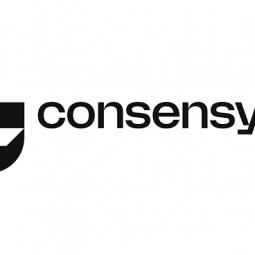Customer Company Size
Large Corporate
Country
- Worldwide
Product
- MetaMask Swaps
Tech Stack
- Ethereum
- Web3
- DeFi
Implementation Scale
- Enterprise-wide Deployment
Impact Metrics
- Cost Savings
- Productivity Improvements
Technology Category
- Platform as a Service (PaaS) - Connectivity Platforms
Applicable Industries
- Finance & Insurance
Applicable Functions
- Procurement
Use Cases
- Machine to Machine Payments
Services
- Software Design & Engineering Services
About The Customer
The customer in this case study is the user base of MetaMask, a cryptocurrency wallet which is also a web browser extension. These users are individuals who engage in peer-to-peer trading using various liquidity protocols. They are likely to be tech-savvy and knowledgeable about decentralized finance (DeFi) and blockchain technology. They are also likely to be global users, as the use of blockchain and DeFi is not confined to any specific geographical location. The users were facing challenges with disjointed trading experiences, multiple approvals, and high gas costs.
The Challenge
The year 2020 saw the largest scale adoption of decentralized exchanges (DEXs). Compared to centralized exchanges, DEXs offer more pairs when trading, provide access to a greater diversity of tokens, and enable non-custodial swaps that keep funds safer. However, DEX users often don’t receive the best price when there is insufficient liquidity, or if a particular DEX doesn’t offer the most attractive price. Before MetaMask Swaps, users needed to navigate many DEXs to compare prices and swap tokens. However, using a single DEX or DEX aggregator did not always yield the best price for every trade, as each aggregator performs differently under different circumstances. Additionally, users needed to approve each token on each DEX, incurring expensive gas costs.
The Solution
MetaMask and Codefi together built Swaps, a feature that enables any Web3 or DeFi user to easily access the tokens they need for the sites they use. This gives users the flexibility to shop for the best decentralized exchange rates before making their purchase, via real time pricing information from multiple sources, a secure, reliable digital wallet, and the convenience of the MetaMask app or web browser extension. By drawing information from the largest decentralized exchanges in the ecosystem, MetaMask Swaps allows users to access real time pricing information from a variety of sources all from the safety of their wallet. In addition to solving the price inefficiency problem, the Codefi Markets team also sought to improve user experience across multiple protocols. Each protocol (and the user interface that comes along with it) involved different paths to complete a trade. The Codefi Markets team abstracted these flows for MetaMask customers and provided a user interface for previously unconnected decentralized protocols, simultaneously providing solutions for both price inefficiency and user experience.
Operational Impact
Quantitative Benefit

Case Study missing?
Start adding your own!
Register with your work email and create a new case study profile for your business.
Related Case Studies.

Case Study
Real-time In-vehicle Monitoring
The telematic solution provides this vital premium-adjusting information. The solution also helps detect and deter vehicle or trailer theft – as soon as a theft occurs, monitoring personnel can alert the appropriate authorities, providing an exact location.“With more and more insurance companies and major fleet operators interested in monitoring driver behaviour on the grounds of road safety, efficient logistics and costs, the market for this type of device and associated e-business services is growing rapidly within Italy and the rest of Europe,” says Franco.“The insurance companies are especially interested in the pay-per-use and pay-as-you-drive applications while other organisations employ the technology for road user charging.”“One million vehicles in Italy currently carry such devices and forecasts indicate that the European market will increase tenfold by 2014.However, for our technology to work effectively, we needed a highly reliable wireless data network to carry the information between the vehicles and monitoring stations.”

Case Study
Safety First with Folksam
The competitiveness of the car insurance market is driving UBI growth as a means for insurance companies to differentiate their customer propositions as well as improving operational efficiency. An insurance model - usage-based insurance ("UBI") - offers possibilities for insurers to do more efficient market segmentation and accurate risk assessment and pricing. Insurers require an IoT solution for the purpose of data collection and performance analysis

Case Study
Smooth Transition to Energy Savings
The building was equipped with four end-of-life Trane water cooled chillers, located in the basement. Johnson Controls installed four York water cooled centrifugal chillers with unit mounted variable speed drives and a total installed cooling capacity of 6,8 MW. Each chiller has a capacity of 1,6 MW (variable to 1.9MW depending upon condenser water temperatures). Johnson Controls needed to design the equipment in such way that it would fit the dimensional constraints of the existing plant area and plant access route but also the specific performance requirements of the client. Morgan Stanley required the chiller plant to match the building load profile, turn down to match the low load requirement when needed and provide an improvement in the Energy Efficiency Ratio across the entire operating range. Other requirements were a reduction in the chiller noise level to improve the working environment in the plant room and a wide operating envelope coupled with intelligent controls to allow possible variation in both flow rate and temperature. The latter was needed to leverage increased capacity from a reduced number of machines during the different installation phases and allow future enhancement to a variable primary flow system.

Case Study
Automated Pallet Labeling Solution for SPR Packaging
SPR Packaging, an American supplier of packaging solutions, was in search of an automated pallet labeling solution that could meet their immediate and future needs. They aimed to equip their lines with automatic printer applicators, but also required a solution that could interface with their accounting software. The challenge was to find a system that could read a 2D code on pallets at the stretch wrapper, track the pallet, and flag any pallets with unread barcodes for inspection. The pallets could be single or double stacked, and the system needed to be able to differentiate between the two. SPR Packaging sought a system integrator with extensive experience in advanced printing and tracking solutions to provide a complete traceability system.

Case Study
Transforming insurance pricing while improving driver safety
The Internet of Things (IoT) is revolutionizing the car insurance industry on a scale not seen since the introduction of the car itself. For decades, premiums have been calculated using proxy-based risk assessment models and historical data. Today, a growing number of innovative companies such as Quebec-based Industrielle Alliance are moving to usage-based insurance (UBI) models, driven by the advancement of telematics technologies and smart tracking devices.
Case Study
Enhancing Security and Compliance in Remitly's Global Money Transfer Service with Fastly
Remitly, an online remittance service, was faced with the challenge of securing its proprietary global transfer network. The company needed a security solution that could meet PCI requirements and protect customers' sensitive transactions through its mobile application. The solution had to be capable of defending against new and emerging attack types without impacting performance. Remitly also had to deal with irregular traffic patterns, such as a sudden spike in account transfers from a small network segment on the Pacific coastline of South America. The company needed to determine in real time whether such traffic indicated an attack or valid requests. A traditional web application firewall (WAF) would not be able to distinguish this traffic, potentially leading to customer frustration if the IP was blacklisted.







